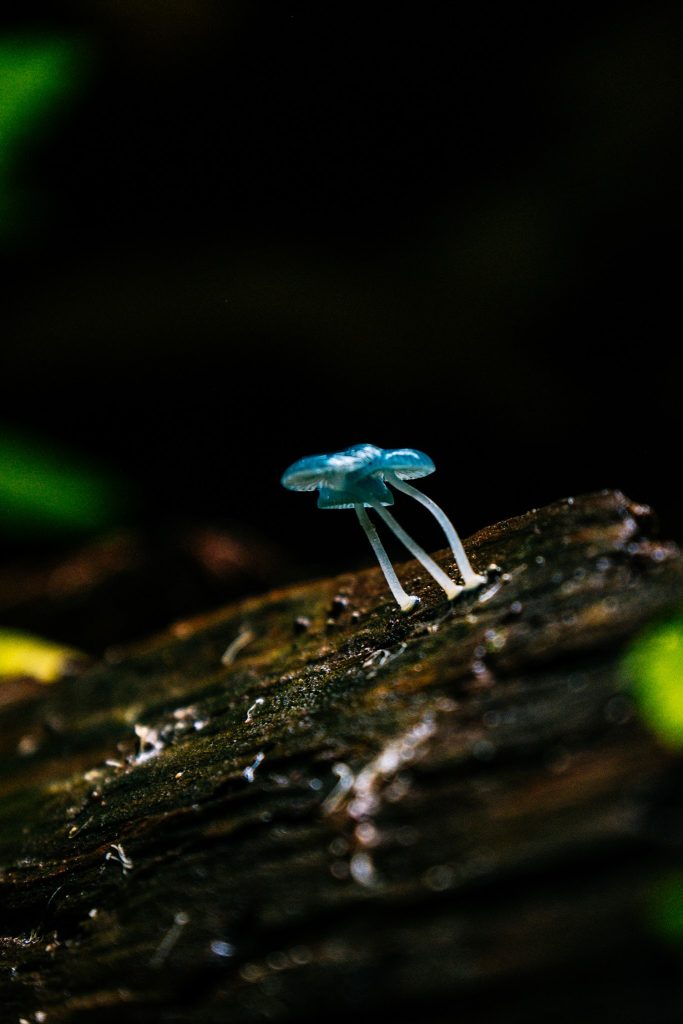By Friederike Uebel
Seriously my thought 20% of the day and hey, I confess, it spilled out more often than I wanted throughout the last 6 weeks of the Engineering Project 1.
When I reveal my love for mushrooms, I am used to encountering some ignorance and stereotyping at least 4 out of 10 times. I never minded, when I walked through the Australian Bush to document what felt like each and every one of them.
Now, I am out of my bubble. Puff. And in a new one – yay! So, maybe, I feel, I have something to share here. And I need to, knowing about the beauty and potential of our shared planet and the urgency of saving it.
But because extreme isn’t in my nature, I do it in a way that I feel like I know best – with story and the help of some imagery.
So, looping back to the mushroom and trying to rewire some of the mental conditioning you might have about them – if you are willing.
Mushrooms can provide us with so much more than the spontaneous, psychedelic revelation that we DO ‘really want to be an artist and man, office jobs just make us f*cking machines, ey?’ At least this is one of the typical enlightenments following a mushroom journey, I heard.

Yes, they do have the capacity to change your brain, which is why they are now being tested on patients suffering from depression all over the world (for example the Centre for Psychedelics Research in London) in something called ‘controlled tripping’.
But it doesn’t stop there.
Strains of oyster mushrooms are now being considered a big hope for their ability to clean up oil spills or can reduce diesel contaminants in soil at an incredible rate. They can kill ants, termites, and other insects without using pesticides. I am kind of rushing through the benefits here, but imagine for a second what impacts not using pesticides has on humans and wildlife. Amazing, right???
They have also been grown to make clothes, furniture, biodegradable packaging material, and even bricks to build houses. A friend of mine was hosting a whole fashion show, dressing people in mushroom ‘leather’.
It is absolute beautiful insanity.
Because of the mushrooms’ information-sharing membranes and their diverse enzymatic and chemical responses to complex challenges in the environment, they teach us a lot about how we can deal with the climate crisis at hand – if we let them. As the largest network of organism-to-organism communication, the “Natural Internet”, as Paul Stamets called them in a TED Talk, and with some evolving around 900 million years ago, we should dare to listen.
But it is not only mushrooms but a lot within the natural world that we can learn from. Stop and smell the roses watch the birds, but also consider moving from an ego-centric (anthropocentric) to a more eco-centric worldview. To recreate the balance that has long been lost.
Reference:
Stamets, P. (2008). 6 ways mushrooms can save the world. Retrieved from https://www.ted.com/talks/paul_stamets_6_ways_mushrooms_can_save_the_world?language=en

